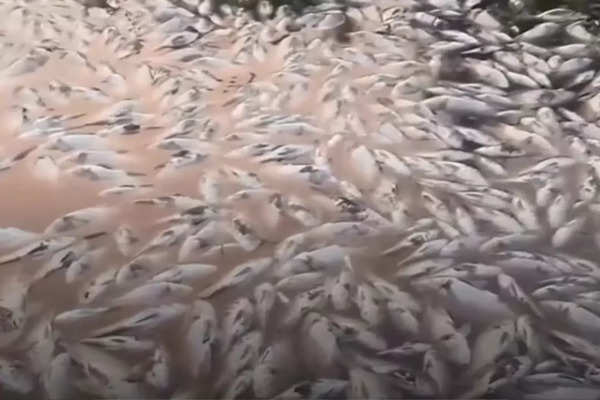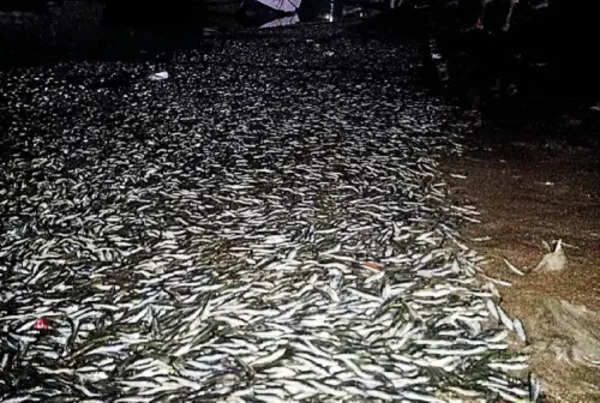A direct discharge of untreated sewage into rivers constitutes a major environmental hazard. This waste consists of toxic pollutants, pathogens, and chemicals that degrade water quality in rivers. This pollution interferes with the aquatic ecosystem, resulting in killing of fishes, decimation of other aquatic life, and endangerment of human and animal health through drinking, fishing, or recreational activities. This toxic sewage leads to the excessive growth of algae in water bodies, causing depletion of oxygen levels which is also harmful to the aquatic life.
A case of environmental negligence has come to light as the Mula-Mutha River near Naik Island, behind the Regional Transport Office in Pune, is shockingly littered with dead fish and other aquatic animals, due to the release of untreated waste. According to reports, residents have attributed this mass accumulation of dead fish to untreated sewage being released from the Naidu Water Purification Project. The local community has said that untreated effluents that are being discharged directly into the river from the Naidu Pumping Station is declining the water quality and resulting in the death of aquatic life.

According to the Free Press Journal, a large number of dead fish were found floating in the Mula-Mutha River near the Naidu Hospital STP (Sewage Treatment Plant) in Pune on Sunday. The huge number of dead fish clearly shows the severe impact of untreated sewage and industrial waste being discharged into the river, bringing to light a critical environmental issue that needs immediate attention.
Residents told the Free Press Journal that both the Pune Municipal Corporation and Maharashtra Pollution Control Board failed to curb pollution in the river. Although several complaints were made and demands for action were filed, no relevant action has been taken by the authorities against those who have indulged in ineffective waste management practices that have been degrading the river ecosystem and posing serious health threats to the population.

The release of untreated sewage and industrial effluents into the Mula-Mutha River has far-reaching consequences. The contamination of the river water poses a significant health risk to the local community, as it can lead to waterborne diseases and other health issues. Additionally, the death of fish and other aquatic animals disrupts the ecological balance of the river, affecting the entire food chain and biodiversity.
What is the impact of the mass death of fish on the ecological balance?
When many fish die suddenly it significantly disrupts the ecological balance in aquatic environments. Fish are a crucial part of the food chain, so when they die, it affects animals that eat them, like birds and bigger fish.
When the dead fish decompose, they use up a lot of oxygen in the water, which makes it hard for other aquatic life to survive. Lesser number of fishes and the decomposition of dead fishes leads to excessive growth of algae, creates “dead zones” where nothing can live. This also makes the water dirty and unsafe for people who use it for drinking, fishing, or swimming. .


